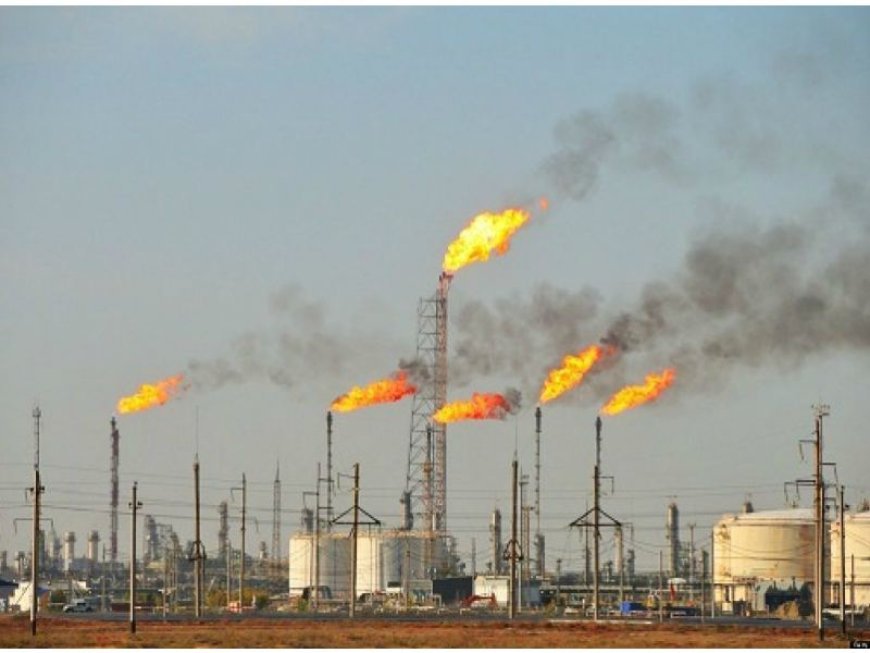Understanding the Motive Behind Transnational Oil Companies Leaving Nigeria
Understanding the Motive Behind Transnational Oil

After about six decades of enormous oil exploration in Nigeria, the transnational oil companies are packing their bags.
Surprisingly, they are leaving at a time the country is opening its doors wider to exploration of more marginal fields.
The Nigerian oil field appears even more ripe for harvesting as the much yearned for Petroleum Industry Act (PIA) has recently come into force. Yet, one wonders, why would a business that has recorded years of economic gains suddenly take to flight when more investment opportunities beckons and the law it contributed significantly to make for a better business environment finally scales through?
The Exodus
The mass departure by some of the world’s top International Oil Companies (IOCs) from the Niger Delta, which has long made Nigeria the largest oil producer in Africa has been christened as divestment. The Oxford Learner’s Dictionary defines divestment as ” the act of selling the shares you have bought in a company or of taking money away from where you have invested it”.
Since 2010, the Anglo-Dutch oil corporation, Shell Petroleum Development Company of Nigeria (SPDC), has commenced selling off several of its stakes in onshore oil fields in the Niger Delta, although quietly.
In its yearly company report for 2014, Shell revealed that it had sold eight Oil Mining Leases (OMLs) in Nigeria between 2010 and 2014. As of 2022, Shell had already sold 50% of its oil assets, according to reports.
Just as Shell, Total Energies, a French multinational oil company started selling off its assets in 2010. The company sold its ownership stake in 11 onshore oil blocks to Nigerian-owned businesses between that time and 2015.
In April 2022, the company had confirmed it was selling its interest in 13 onshore fields and three in shallow water, producing over 20,000 barrels of oil equivalent per day. The sale includes infrastructure such as 3,500 km of pipelines connecting to two key crude export terminals, Bonny and Forcados.
Similarly, in 2019, information surfaced that the United States energy giant, ExxonMobil, had held talks on the sale of some oil and gas fields in Nigeria as the company focuses on new developments in United States shale and Guyana.
In February 2022, the Irving, Texas-based company which operates 106 platforms in Nigeria announced that it was selling its equity interest in its Nigerian Shallow water assets to a domestic company, Seplat Energy. The company’s statement on the sales noted ” When finalized, the sale will include the Mobil Development Nigeria and Mobil Exploration Nigeria equity ownership of Mobil Producing Nigeria Unlimited, which holds a 40% stake in four oil mining licenses, including more than 90 shallow-water and onshore platforms and 300 producing wells.”
The company however said that it will continue with its deep-water operations. “ExxonMobil will maintain a significant deep-water presence in Nigeria, including interests in the Erha, Usan and Bonga developments via Esso Exploration and Production Nigeria Limited and Esso Exploration and Production Nigeria (Deepwater) Limited”, the statement added.
Again, an American multinational energy corporation, Chevron in 2015 sold its 40 percent stake in OMLs 83 and 85. Five years later, the company again sold its stake in OMLs 86 and 88 to Nigerian independent oil company Conoil.
For Agip Oil Company, a subsidiary of Italian-owned Eni SpA, in 2015, news reports surfaced quoting Eni Chief Executive Officer Claudio Descalzi as announcing plans to sell Nigerian assets. About six years later in January 2021, Eni alongside its partners Shell and Total E&P sold 45% of its holdings in OML 17 located in the city of Port Harcourt to Heirs Holdings.
Reason for the Flight: IOCs Tell Their Stories
11 years after quietly selling its assets in Nigeria, Ben van Beurden, Chief Executive Officer of Shell, while speaking at the company’s annual general meeting in May 2021 said Shell is divesting because it can no longer be exposed to the risk of theft and sabotage in the Niger Delta.
“We cannot solve community problems in the Niger Delta; that’s for the Nigerian government perhaps to solve. We can do our best, but at some point in time, we also have to conclude that this is an exposure that doesn’t fit with our risk appetite anymore,” he said.
Similarly, in April 2022, Total’s Chief Executive Officer, Patrick Pouyanne, said “disruption of local communities are sources of great concerns” necessitating the company divestment.
For ExxonMobil, it is the question of priority in investment. Liam Mallon, President, ExxonMobil Upstream Oil and Gas in the sales statement noted “This sale will allow us to prioritize competitively advantaged investments in our strategic assets, and it supports the Nigerian government’s efforts to grow its oil and gas operations.”
Chevron on its part reported that the sales is a move to reshape the company’s “portfolio as it focuses on growing its U.S. shale output.” Also, Eni claims it is divesting peripheral businesses amid a drop in oil prices.
At other times, oil companies have referenced climate change concerns and the need to achieve net zero targets as their motivation for divestment. But are these claims really true?
Claims Interrogated
Very few have interrogated the claims made by the transnational oil companies on the reason for their divestment.
Interestingly, a Non-Governmental Organisation that works for ecological justice in Nigeria’s Niger Delta region, We the People, has questioned the divestment claims, made findings and offered explanation into what it believes is the untold story behind the recent wave of divestment by international oil companies (IOCs) in Nigeria.
In its recent report, ” Dirty Exit”, We the People insists that the claims by the transnational companies are a mere ruse.



























![MOVIE: HOUSE OF THE DRAGON S2 [DOWNLOAD]](https://ngrtoday.com/uploads/images/202407/image_430x256_668bb73088dfd.jpg)


















![MOVIE: HOUSE OF THE DRAGON S2 [DOWNLOAD]](https://ngrtoday.com/uploads/images/202407/image_140x98_668bb7308ec25.jpg)



